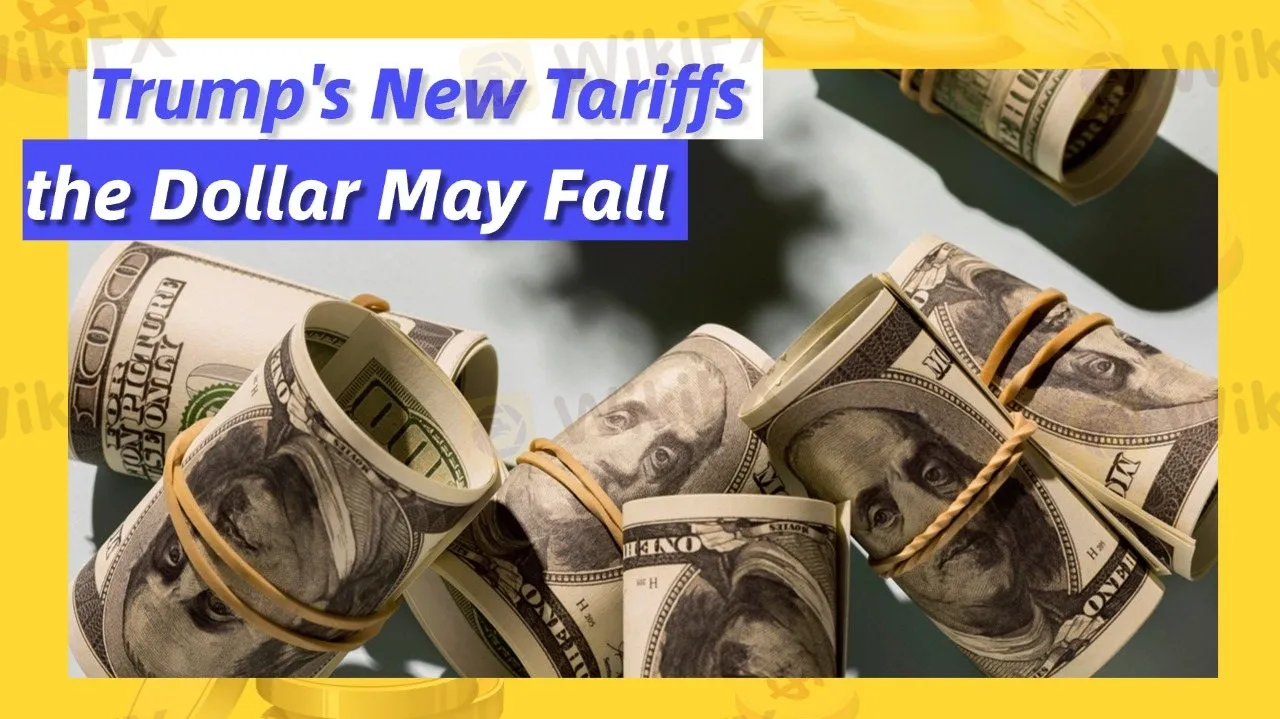简体中文
繁體中文
English
Pусский
日本語
ภาษาไทย
Tiếng Việt
Bahasa Indonesia
Español
हिन्दी
Filippiiniläinen
Français
Deutsch
Português
Türkçe
한국어
العربية
Trump's new tariffs, the dollar may fall
Abstract:As Trump nears taking office, the key question is whether these new tariffs will be implemented, and whether the dollar can continue to rise.

During his campaign, Trump proposed a 10-20% tariff on all imported goods, with a 60% tariff specifically on Chinese products.
Recent reports indicate that Trumps team is working on a new tariff plan, aiming to impose import duties on certain goods from around the world. This plan is different from the “universal tariffs” that Trump suggested during his campaign, and the specific goods or industries that will be affected have not yet been disclosed.
The tariff policy Trump proposed during the election primarily aimed to protect U.S. domestic manufacturing, reducing competition from low-priced imports. This policy was closely tied to Trumps campaign promises and helped garner support from voters. Additionally, the revenue generated from tariffs could offset potential tax losses from other tax cuts.

However, Trump has denied reducing the intensity of the new tariffs, leading to a drop in the dollar during volatile trading, with the dollar index falling by 0.7% to 108.23.
It remains unclear whether Trump will change his mind, and the tariff policy is still being adjusted, with no final decisions made yet.
One reason for considering adjustments to the “universal tariff” is that such a policy could provoke a strong reaction from U.S. consumers and businesses. If prices on everyday items like food and consumer electronics rise, it could lead to public dissatisfaction.
Trump's team is clearly aware that widespread tariffs could trigger retaliation from international trade partners, further intensifying global supply chain uncertainty and increasing costs for U.S. businesses and consumers.

Disclaimer:
The views in this article only represent the author's personal views, and do not constitute investment advice on this platform. This platform does not guarantee the accuracy, completeness and timeliness of the information in the article, and will not be liable for any loss caused by the use of or reliance on the information in the article.
Read more

Beware of Fraudulent Letters: Malaysia’s Securities Commission Issues Warning
The Securities Commission Malaysia (SC) has raised an alarm over fraudulent letters and emails falsely claiming to be from the regulatory body. These fake communications are allegedly tied to illicit investment schemes that seek payments from unsuspecting investors.

Singapore’s New Law Allows Police to Freeze Scam Victims’ Bank Accounts
Singapore has enacted a new law enabling police to freeze bank accounts of scam victims as a last-resort measure to prevent financial losses.

Discover How Your Trading Personality Shapes Success
WikiFX’s latest event not only helps you reflect on your 2024 investment journey but also introduces a unique opportunity to uncover your trading personality. Understanding your trading personality is key to thriving in the financial markets. It shapes your decision-making, risk tolerance, and overall trading strategies. Whether you are an analytical trader who relies on data, an intuitive trader who trusts instincts, or a cautious trader who values safety over risk, knowing your traits can improve your performance and decision-making.

Double Trouble for Stocks and Forex: What's Next for the Indian Rupee?
Recently, the Indian rupee has faced another round of selling, with the exchange rate against the US dollar briefly falling below the 86 mark, hitting a new record low of 86.006.
WikiFX Broker
Latest News
Ghana Trader Jailed for $300K Forex and Crypto Scam
US Dollar Surge Dominates Forex Market
Hong Kong Police Bust Deepfake Crypto Scam Syndicate Involving $34 Million
Is it a good time to buy Korean Won with the current depreciation?
Pepperstone Sponsored the "Aston Martin Aramco Formula One Team"
ACY Securities Integrates MetaTrader 5 to Enhnace Copy Trading Service
Soegee Futures Review: Should You Trust This Broker?
Malaysian Pilot Loses RM1.36 Million in UVKXE Investment App Scam
Indonesia officially joins the BRICS countries
Attention! Goldman Sachs Cuts Gold Target to $2910
Currency Calculator






